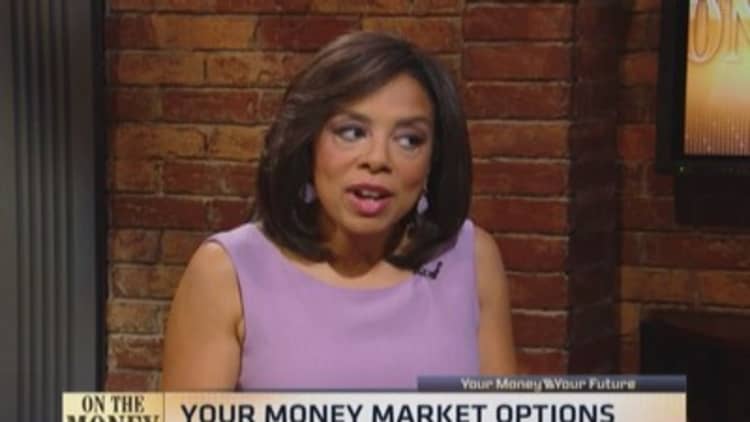
Millions of investors use money market mutual funds to stash "cash" in their portfolios, since they're generally viewed as safe, convenient short-term investments—and there are major changes on the horizon designed to make them safer.
But are money funds the safest place for your cash? Many consumers don't know what distinguishes money market funds and money market accounts offered at their local bank or how to assess which is the safest place for their hard-earned dollars.
U.S. investors have parked nearly $3 trillion in money market mutual funds. Regulators have been tightening rules to make them safer in the wake of the mass exodus from these funds during the 2008 financial crisis. Last month, the Securities and Exchange Commission approved a new rule to help prevent a dramatic flight from these funds from happening again.
One portion of the new SEC rule is intended to better reflect the underlying value of money market mutual funds held by institutions and does not impact the money market funds that average investors own. Another portion of the new rule requires all money market funds (except government money market funds) to pose certain restrictions on withdrawals if there is a sharp decline in the amount of underlying investments in the fund that could easily be sold to raise cash.
Read MoreHow to improve credit where better credit is due
While the new SEC rule is designed to prevent another stampede from money market funds, there is no impact on consumers who keep their stash of cash in their bank's money market account. They're not the same. Here are three main differences between money market funds and money market accounts:
Money market mutual funds are investments and are not insured. The funds invest in low-risk, highly-liquid investments like U.S. Treasury security (T-bills), certificates of deposit (CDs) and corporate commercial paper. They are regulated by the SEC and their value is determined by underlying investments, but they are not guaranteed investments.
Money market deposit accounts, like savings accounts, are FDIC insured. A money market account is like a "souped-up" savings account that can also invest your money in treasury notes, CDs and other short-term investments to give you a slightly better yield than a regular savings account. As with a savings account, the federal government insures your deposits in a money market account up to $250,000.
Money market account rates are currently better than money market fund yields. Historically, money market funds have had higher yields than bank deposits. But with interest rates so low, yields on money market funds after expenses are near zero. While the average yield on a money market fund is 0.01 percent, savings and money market account rates are about 0.10 percent on average. Some online banks offer money market account rates of almost a full percent, according to Bankrate.com.
Read MoreWant some smart money advice? Ask a 25-year-old
Where is the safest place for your cash? It depends on how you'll use it.
If you need the money for emergencies—to pay household bills if you lose your job or fix the boiler or roof of your home—you may want to put those funds in a money market account at the bank.
On the other hand, if you want to keep some of your investment portfolio in "cash," a money market fund may be the easiest way to make sure you have funds on the sideline that can readily be moved into other investments.
For most investors, it's probably a good idea to have a little money in both.
Read MoreWant to build up your nest egg? Think location
—By CNBC's Sharon Epperson


